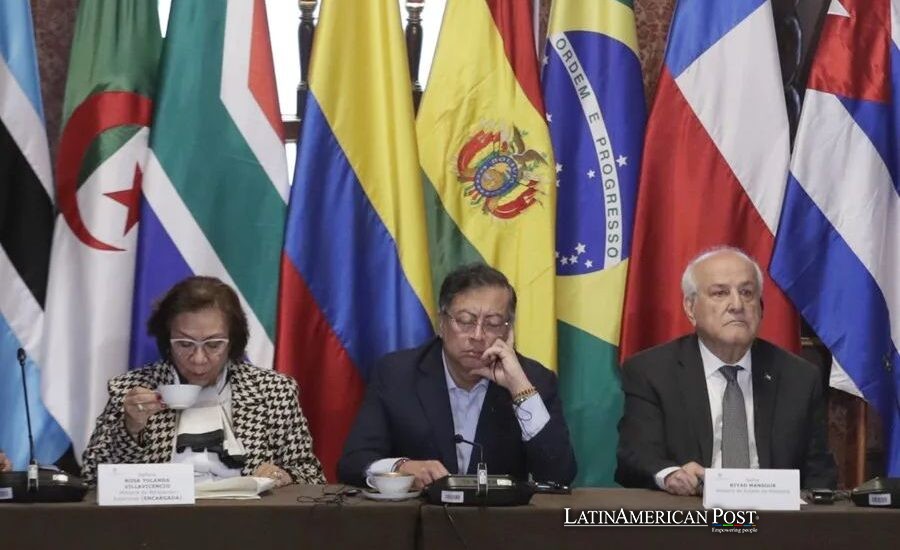Bolivia Colombia Cuba Honduras Stand United Against Arms to Israel

In Bogotá this July, a bold coalition led by Bolivia, Colombia, Cuba, and Honduras vowed to cut off weapons fueling the violence in Gaza — a move sparking hope for peace in a world weary of endless conflict.
A Gathering Born from Urgency
The air in Bogotá was thick with tension and purpose as representatives from over 30 countries gathered in a hastily convened emergency summit. The Group of The Hague—an alliance only formed earlier this year—met to confront one of the most urgent crises gripping the world: the escalating war in Gaza.
This coalition, which includes Bolivia, Colombia, Cuba, and Honduras alongside countries from Africa and Asia, emerged out of a shared alarm over the devastating toll on civilians in the Palestinian territories. Their message was clear: no more arms should flow into a conflict zone already drenched in blood.
Mauricio Jaramillo Jassir, Colombia’s Vice Minister for Multilateral Affairs, delivered a firm declaration on behalf of the group, pledging to block any shipments of weapons, military fuel, and related equipment heading to Israel. This isn’t just symbolic. It’s a direct effort to choke the supply lines that keep the violence going.
Beyond just weapons, the coalition vowed to deny docking, transit, or any port services to ships carrying military cargo destined for Israel—wherever their jurisdiction reaches. It’s a multi-pronged stand designed to stop the machinery of war at every possible turn.
Laws in Action Against War Crimes
This group doesn’t just talk. Earlier in the year, they made headlines by committing to enforce arrest warrants issued by the International Criminal Court against Israeli Prime Minister Benjamin Netanyahu for alleged war crimes.
Now, they’ve taken things further. They’re reviewing government contracts to make sure no public money or institutions support what they call “the illegal occupation” of Palestinian land. That’s a heavy charge and a bold step toward accountability.
Ships flying the flags of member countries will also be barred from ferrying arms to Israel—a move closing potential loopholes in the embargo. Other nations such as Indonesia, Iraq, Libya, Nicaragua, Oman, and Saint Vincent and the Grenadines have also thrown their weight behind the effort.
This is a rare example of an international coalition stepping up not just to condemn, but to act decisively on an issue that often divides global opinion.
A Beacon of Hope for Gaza
The weight of the summit’s promises was not lost on Francesca Albanese, the United Nations Special Rapporteur for Palestine, who addressed the gathering with palpable emotion.
She called the measures a “lifeline” for Palestinians caught in a brutal conflict with little respite. Albanese praised the bravery of the countries stepping forward to make these commitments and urged them to turn words into swift, enforceable laws.
“These are not just policies—they are lifelines,” she said. “Every state should implement them fully and quickly. The arms embargoes need to become urgent national priorities, backed by laws that can’t be bypassed.”
Her words cut through the often dry language of diplomacy, reminding everyone present of the human lives hanging in the balance.
Voices Rising Against Tyranny and War
Colombia’s President Gustavo Petro didn’t mince words. To him, what’s happening in Gaza is not just a regional conflict but a test—a “cruel experiment” by the world’s richest nations trying to crush what he calls “humanity’s rebellion.”
Petro spoke of the tyranny ruling today’s global order and held up freedom as the true path to ending wars. “The day every person on this planet is free, wars will end,” he said, his voice ringing through the conference hall.
His message found resonance among the diverse crowd, which included delegations from Brazil, Bolivia, Chile, China, Cuba, Egypt, Spain, Honduras, Ireland, Mexico, Nicaragua, Uruguay, and Venezuela.
With the UN Special Rapporteur there and broad international support behind the arms embargo, this coalition is sending a powerful message: enough is enough.
This summit in Bogotá, a city far from the dust and rubble of Gaza, represents a crucial moment in the fight to halt the bloodshed. The countries at its heart are using every tool they can—diplomatic, legal, and moral—to try to stop the weapons that feed the flames of war.
Also Read: As a Lake Disappears, Mexico and Texas Clash Over Water Promises Made in a Different Climate
What happens next depends on follow-through, but the courage and unity displayed offer a rare spark of hope in a world that badly needs it.
Credits: This story is based on reporting and quotes from EFE.




